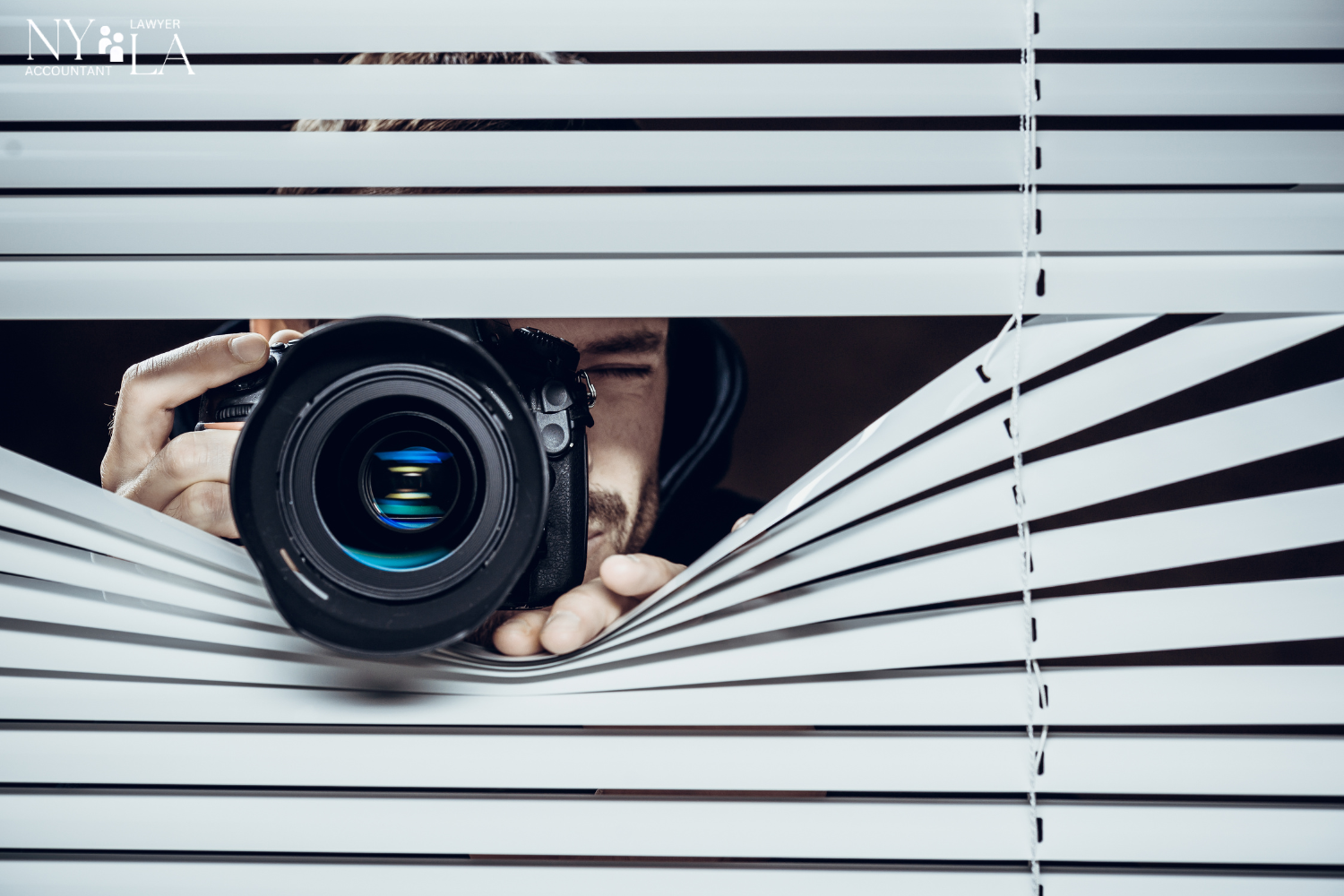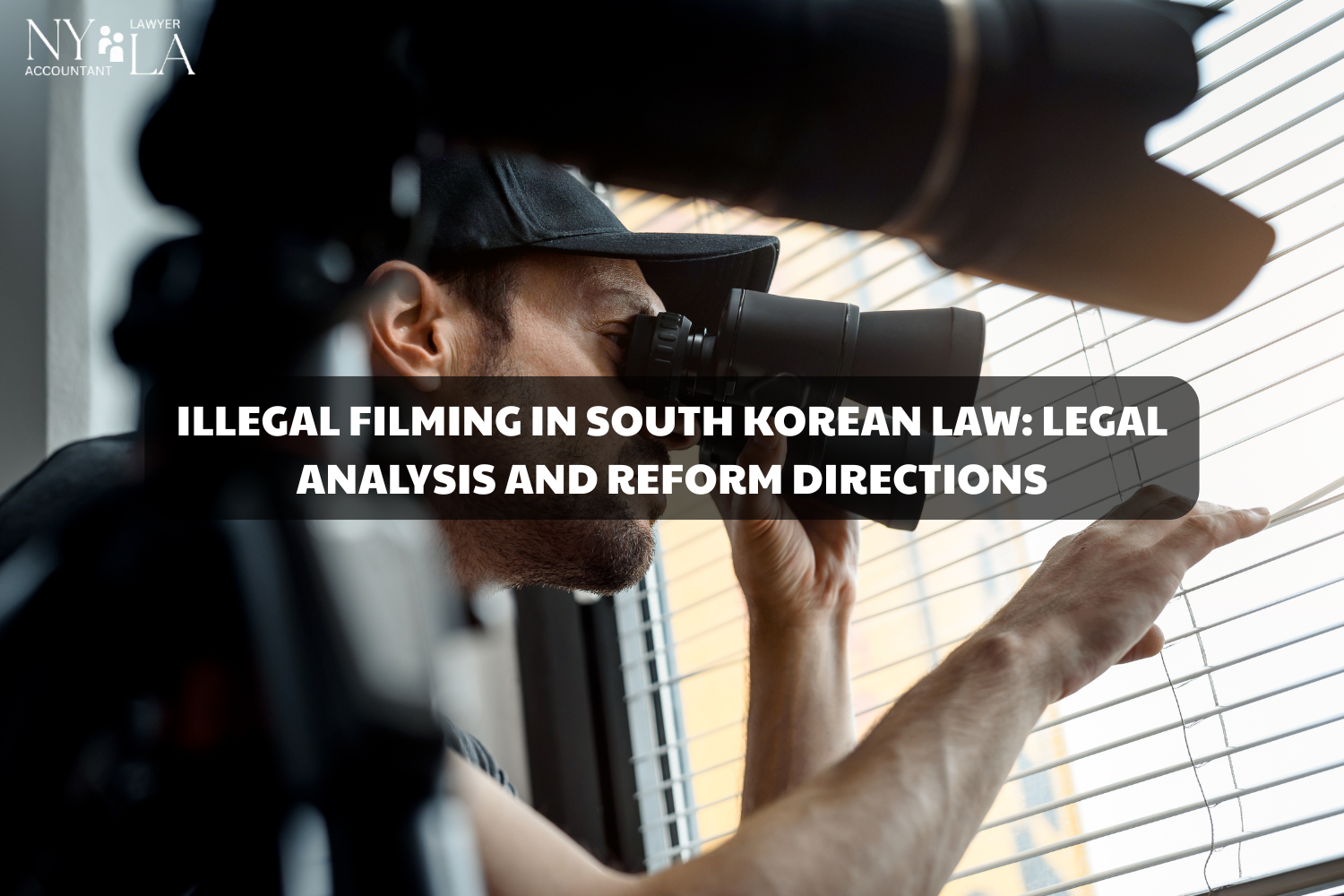Summary
- 1. Introduction: Understanding Illegal Filming in South Korea
- 2. Legal Provisions on Illegal Filming in South Korea
- 3. Sentencing Disparities in Criminal Prosecution
- 4. Limitations in Scope of Current Legal Framework
- 5. The Law Lagging Behind Technology
- 6. Conclusion: Toward Stronger Protection Against Illegal Filming
1. Introduction: Understanding Illegal Filming in South Korea
In the era of digital technology and rapid communication, illegal filming, known in Korean as “미니 카메라” or “몰카” (molka), has become an alarming criminal trend in South Korea. This term refers to the use of discreet devices such as mini cameras, spy pens, or watch cameras to secretly record individuals—especially in private or vulnerable settings like under women’s skirts, public restrooms, bathhouses, fitting rooms, or even inside their own homes.
The proliferation of illegal filming content has resulted in serious psychological, reputational, and privacy-related harm to victims. In response, South Korea enacted Article 14 of the “Act on Special Cases Concerning the Punishment of Sexual Crimes,” which serves as the main legal framework for addressing illegal filming. However, the enforcement and effectiveness of this law still reveal various shortcomings. This article aims to analyze the current legal provisions, identify enforcement challenges, and propose future reforms.

2. Legal Provisions on Illegal Filming in South Korea
According to Article 14(1) of the Act on Special Cases Concerning the Punishment of Sexual Crimes:
“A person who photographs or records another person’s body without their consent, in a manner likely to arouse sexual desire or cause shame, using a camera or similar device, shall be punished by imprisonment of up to seven years or a fine not exceeding 50 million KRW.”
Key Legal Elements:
- Perpetrator (Subjective Element):
The offender must be a person with criminal responsibility, typically aged 14 or older under Korean criminal law. There is no requirement for special legal status or professional expertise; any individual can be prosecuted if legal conditions are met. - Victim’s Rights (Protected Legal Interests):
Illegal filming infringes upon:- The right to bodily privacy
- Personal honor and dignity
- The right to control personal information
- Public morals and sexual integrity
- Objective Elements of the Offense:
- Use of a recording device: The offender must use a camera or similar device (e.g., phone, mini cam, spy pen, glasses camera, or drone) to capture footage surreptitiously.
- Filming of body parts: The recorded footage must involve body parts that could be considered sexually provocative or humiliating. This may occur in both public and private spaces.
- Without the victim’s consent: Consent must be explicit. If the victim is unaware or incapable of expressing intent (e.g., asleep or filmed from a distance), the act still qualifies as illegal filming.
- Intent to arouse or shame: Even without overt sexual gratification, the act must be intended to cause embarrassment or sexual stimulation.
3. Sentencing Disparities in Criminal Prosecution
South Korean law currently imposes the same level of punishment on those who film illegally, retain footage, distribute it online, or sell it. However, the level of harm varies significantly among these acts. For instance, public distribution of illegal footage can inflict far more psychological trauma than merely recording the content.
Punishing illegal filming and large-scale distribution equally contradicts the legal principle of proportionality, which mandates that penalties reflect the severity of the offense. The absence of graduated punishment often leads to perceptions of unfairness and lenient sentencing.

4. Limitations in Scope of Current Legal Framework
Several gaps exist in the current provisions on illegal filming:
- Ambiguity in “Sexual or Humiliating Content” Criterion:
The law requires that the footage be capable of causing sexual arousal or humiliation. However, this condition is subjective and open to interpretation. For instance, footage of someone’s face or arms in a bathroom may still breach their privacy but might not satisfy this legal criterion. - Lack of Coverage in Private Spaces:
The law focuses primarily on illegal filming in public areas (e.g., subways, restrooms) but does not sufficiently address acts occurring in private residences or temporary accommodations. Cases of hidden cameras embedded in smoke detectors, electrical outlets, or curtains often fall into legal gray areas. - No Distinction for Equipment Producers and Sellers:
South Korean law lacks separate provisions for manufacturing, selling, or distributing illegal filming devices. These devices are easily available online, which fuels the prevalence of such crimes. The lack of distinction between “users” and “enablers” complicates investigations and enforcement.
5. The Law Lagging Behind Technology
While illegal filming is condemned by both society and lawmakers, its practical prosecution remains complex. In many instances, clear violations go unpunished due to legal technicalities such as insufficient evidence of “shame” or “sexual context.”
With increasingly sophisticated recording devices that are hard to detect and easy to conceal, perpetrators may evade responsibility by claiming lack of intent. Victims often discover the intrusion too late, and the harm is already done.
These realities reveal that South Korean law, although in place, is not agile or comprehensive enough to match the evolving methods of illegal filming. This legal lag continues to leave victims unprotected.
6. Conclusion: Toward Stronger Protection Against Illegal Filming
Illegal filming represents a grave invasion of personal privacy in modern society. Despite existing legal provisions, loopholes in the current framework prevent many victims from receiving justice.
As recording technologies become more advanced, and legal standards remain static, victims are left vulnerable and often face significant psychological harm without adequate redress.
A thorough understanding of illegal filming laws, coupled with critical evaluation of current limitations, is essential—not only for potential victims but also for legislators and legal professionals working to ensure a safer, privacy-respecting environment in South Korea.
7. About NYLA – Korean Legal Office

■ NYLA – Your Trusted Legal Partner in Korea
At NYLA, we understand that the success of foreign businesses in Korea requires not only a solid business strategy but also reliable legal support. With a team of experienced Korean attorneys and legal professionals, NYLA provides tailored legal services for companies, investors, and individuals operating or planning to establish a presence in Korea.
We support our clients throughout the entire business journey with comprehensive services, including:
- Legal consultation on company establishment, taxation, and immigration;
- Advice on commercial real estate, franchising, and product distribution;
- Support in human resources, marketing, and business strategy.
In addition to legal advisory, NYLA also represents clients in civil litigation cases related to business, labor, marriage, family, and inheritance to ensure their rights and interests are fully protected.
■ Contact NYLA

If you’re a foreign business or individual looking for a reliable legal partner in Korea, NYLA is here to help. We are committed to delivering effective, practical, and personalized legal solutions for every client.
With a proven track record of assisting hundreds of international clients, our team is equipped to help you navigate complex legal challenges—whether it’s commercial disputes, contract issues, or foreign investment guidance.
Don’t let legal matters hold you back. Let NYLA be your trusted guide in the Korean market.
■ Get in touch with NYLA for expert legal support
| Website: https://nylakoreanlegal.com/
FB: https://www.facebook.com/nyla.koreanlegal Tiktok: https://www.tiktok.com/@nylakoreanlegal Youtube: https://www.youtube.com/@NYLA-xd8qx Email: info.NYLAkoreanlegal@gmail.com SĐT: +82 10-3415-7859 |
 |






















































